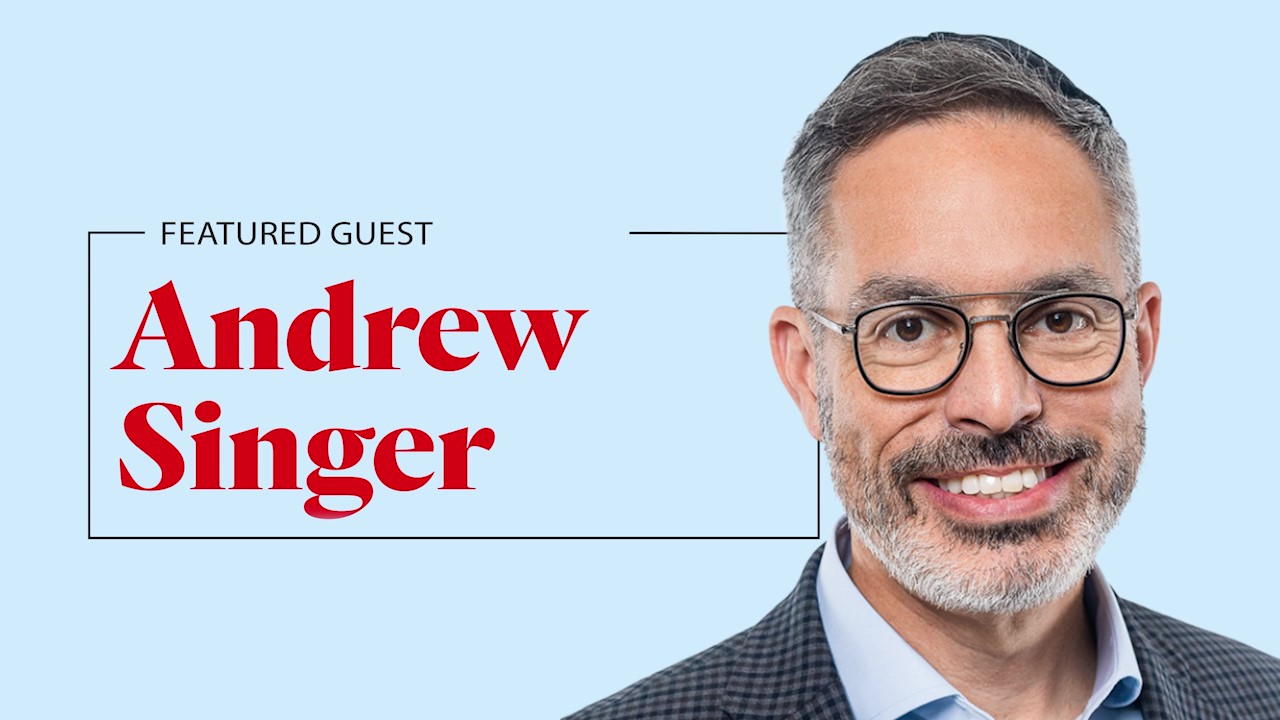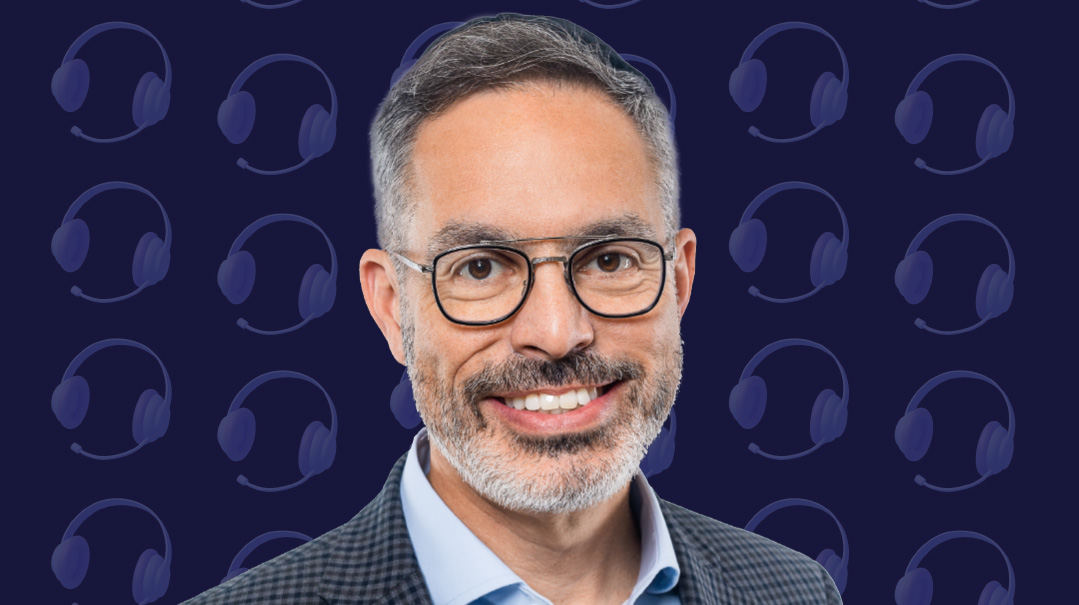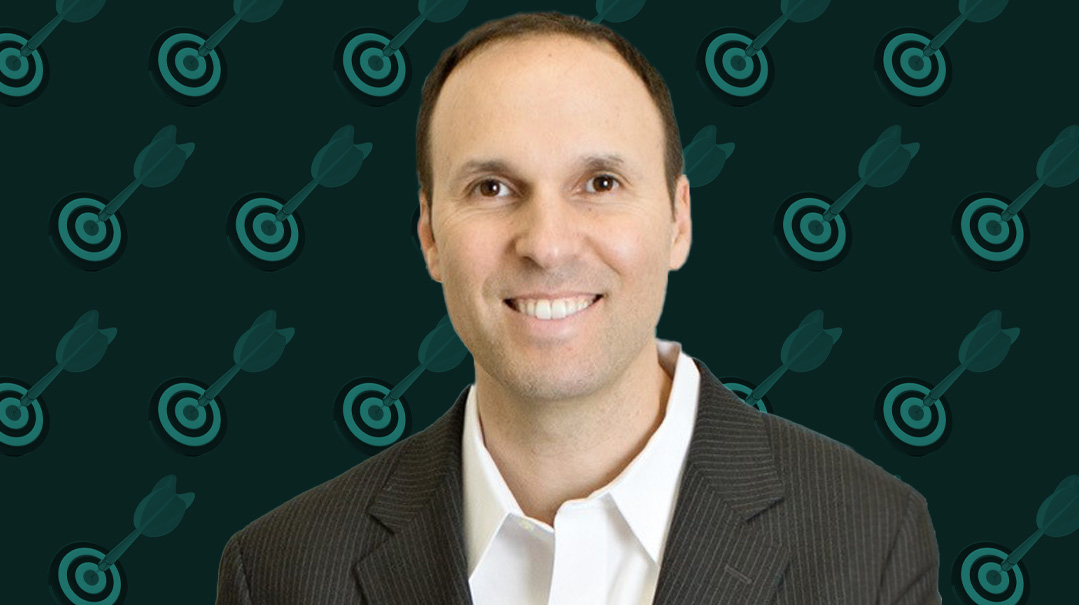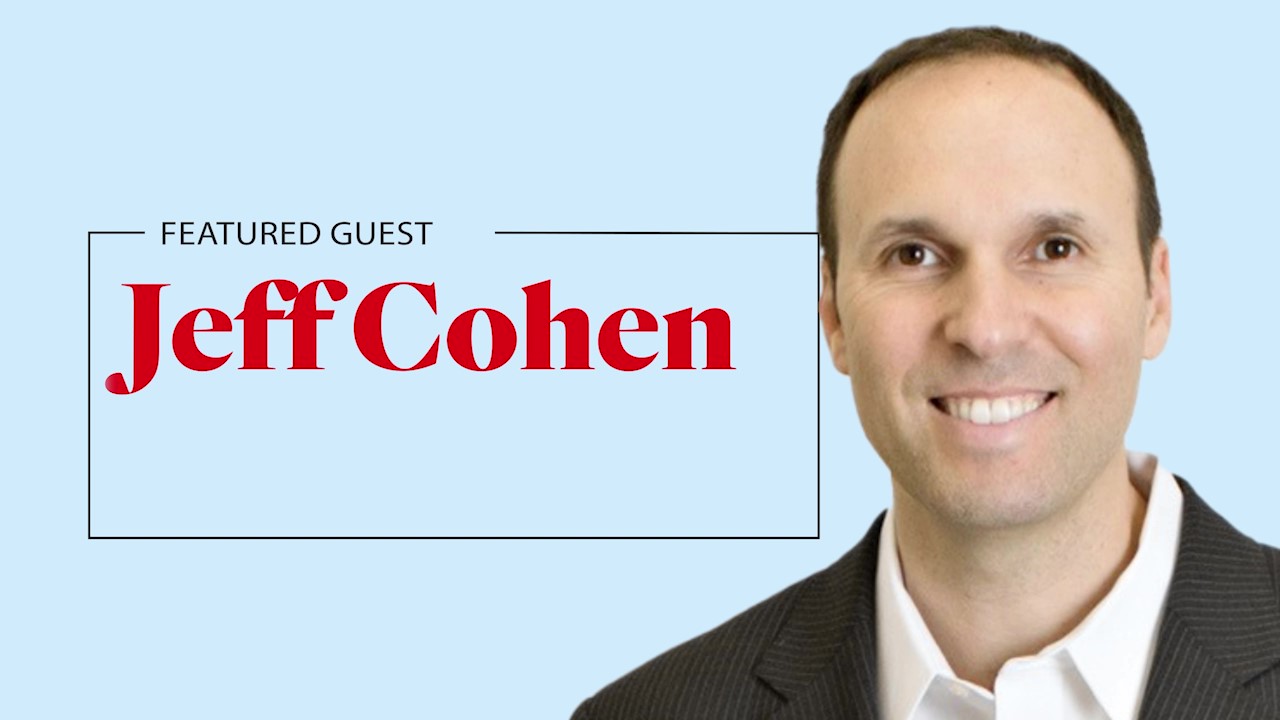The System Is Sick
| December 12, 2023Marshall Allen is the author of Never Pay the First Bill, a book about navigating the American health care system
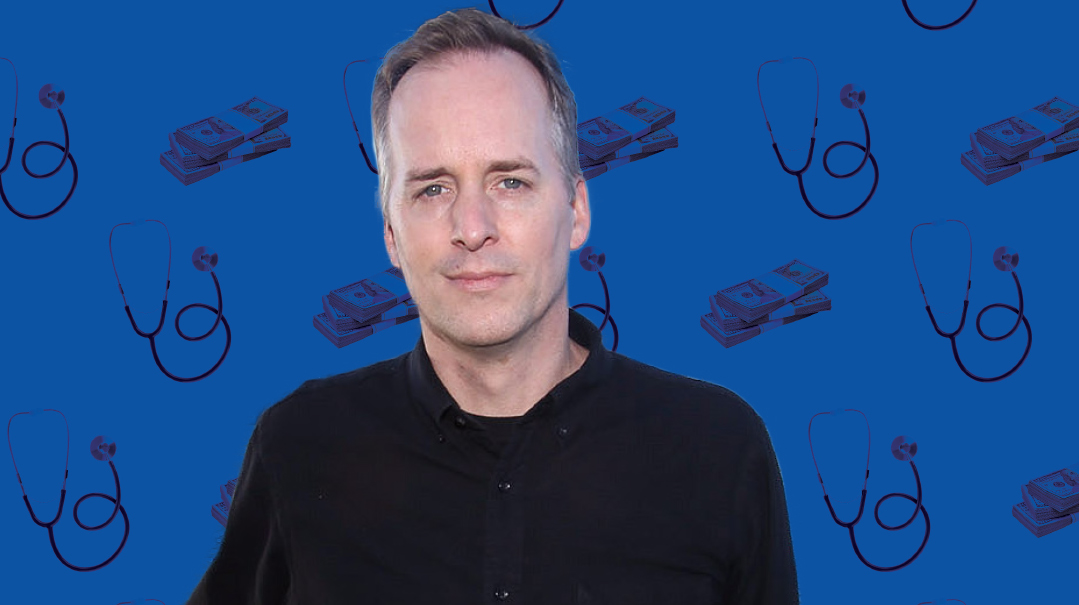
With Marshall Allen
The poor old middle class. You don’t qualify for government subsidies — but don’t make enough to survive all on your own. And pay a lot more for medical care.
Marshall Allen is the author of Never Pay the First Bill, a book about navigating the American health care system. He exposes the underside of the health care industry, which he says places a huge, outrageous, and completely unjustified burden on middle-class Americans who aren’t old enough for Medicare and make too much for Medicaid (which is most people). He argues that the medical system’s costs are unreasonable and could be much, much lower.
Marshall has been an investigative journalist for more than 20 years. When he started digging into the medical system, he was outraged at the clear injustices he discovered. “If you go down the wrong path with a health care encounter, it could cost you thousands of dollars more than it should. And they will still come after you for those bills. They will still send collection agencies after you. People need to be informed before they encounter the health care system so they can be protected.”
In an enlightening conversation with Kosher Money, Marshall shares some of the wisdom from his book and how to navigate the health care industry to make sure that when a bill arrives, you’re not being taken advantage of.
What led you to writing this book?
My dad suffered from dementia for eight years before he passed away. At certain points during his care, especially during his decline, my mom had to put him in a nursing home for short bouts of time. She specified during the admission that if he needed anything, she would take him out for the day and go to his own doctors. She did not want him to be treated by any physician at the nursing home.
At one point, she noticed a real decline in my dad‘s cognition. She looked on the medical bill and noticed that there had been a drug added to his regimen — prescribed by a medical provider who saw him without her consent. She looked up the drug and found that it causes cognitive problems in people with dementia.
She called the facility, they took him off the drug, and he recovered right away.
Then the billing company sent my mom a bill for this primary care visit — that she had not given consent for, that she had not approved, and which, in fact, had caused my dad harm. Obviously, we refused to pay. My mom handed the fight over to me, and while it took a lot of work, they eventually backed down.
It made me think though, how many other Americans in a similar situation would have just paid — even though they never should have. Or, they would have gone into debt because of a medical bill they could not afford.
People need to know how to navigate the system. I compare it to learning financial literacy, like balancing a checkbook. People aren’t taught how to navigate the health care system or how to protect their money from being taken unjustifiably by a doctor or a hospital or an insurance company. But it can be done.
Let’s take a step back. How did the American insurance system start off?
In the 1700s, there was a law passed that siphoned off a part of sailors’ paychecks to pay their medical services. And then in the 1800s, when the railroads and forestry companies were expanding out west, they also started taking money from their employees’ paychecks to pay for the hospitals they would build as they expanded westward.
Things really accelerated after World War II, when a wage freeze set in. To better compensate employees, employers began offering health benefits, which made them mainstream. The first health insurance plans started around that time, and things just took off from there.
Why is the medical system so broken today?
The system makes up 20 percent of our financial infrastructure, and as long as it’s making money, the various health care stakeholders will push to maintain their control. Hospitals are also huge employers. In any given small town, they’re a primary employer so it’s hard for local politicians to crack down on them. And in the United States, there’s a popular attitude that says, “If it makes money, we’re good with it,” regardless of the harm it might be causing to a lot of people.
You said the administrative complexity of the health care system is absolutely absurd. Can you elaborate?
We are wasting hundreds of billions of dollars a year in health care. So if we could save just the amount of money being wasted, we would save about a trillion dollars a year — about a fourth of what we spend.
My argument is that we need the health care system to tighten its belt, run a tight ship, improve its efficiency, stop overpaying some of its people, and make a fair profit in an efficient way, just like any other business.
Right now, instead of running things efficiently, they continue to increase the inefficiencies, increase the errors, and increase the overcharges, so that on average working people are paying two to three times more than what someone would pay if they’re on Medicare.
You said that just because you have insurance doesn’t mean you’re insured. Can you explain?
Many people fall under the category of underinsured. Even if they have benefits through their employer, their deductibles are massive and they‘re still overpaying. Deductibles are the amount you have to pay before your insurance pays anything. Deductibles to the tune of $5,000 are not unheard of these days, which means that unless you have more than $5,000 in the bank, you’re effectively uninsured.
Statistically, about half of Americans don’t have more than about $400 in their bank account at any given time. So even with something like a $1,500 deductible, you‘re going to go into debt for any bill over a few hundred dollars.
You claim that if you learn to navigate the system in a savvy way, you can save hundreds or thousands of dollars per health care encounter. What would that look like?
Everything is more expensive in the hospital. If your doctors refer you for additional testing, they’re going to refer you within their hospital network — and you’ll be charged more for it. But unless you’ve been admitted and it’s urgent, you can usually take the order elsewhere. Instead of paying $3,000 for an MRI, you could pay $300. The same is true for lab tests and any other service you might receive in a hospital setting. With this knowledge alone, you can avoid overpaying and getting hit with bills that are both exorbitant and unfair.
What’s the first step you should take when you receive a medical bill?
The first step is to get an itemized bill, which contains a breakdown of the price you’re being charged for each service. Make sure it only contains charges for things that actually occurred. Then check those prices to make sure they are fair. My book and other resources show how to do this. If you’re insured, you also need to make sure your insurance plan has processed things correctly.
If all that checks out, then you should pay the bill or work out a payment plan. But don’t pay it before you ask for a discount. Call the billing department and politely say, “Could you please give me a discount?”
Remember, these numbers are made up to begin with. So ask nicely for a discount, and hopefully they’ll give you one.
And if they say no?
If the prices are fair compared to what you’ve checked, then you don’t have a lot of leverage. But if the prices are inaccurate or unfair, then your goal is to give them the incentive they need to do the right thing. And so you’re going to need to apply some pressure. Reach out to local hospital board members or politicians. You could file complaints with your local attorney general’s office if it looks like this might be a fraudulent type of a claim. And every time you’re doing this, you want to let them know. You want to stir up enough dust in their billing office to give them the incentive they need to do the right thing, to come to the table and give you that discount.
You can file complaints on social media; you’d be surprised how much hospitals and doctors care about their public reputations. Again, all you want to do is get this escalated to a high enough level that somebody in that facility says, “Okay, let’s just give the person the discount that they need.”
You have the most power when you sue in small claims court. My book shows how to do it and it’s quite effective.
We had our first podcast conversation a while ago. How have things evolved since then?
I’m seeing a ton of momentum building. It’s becoming more and more clear to working Americans that they’re being taken advantage of by the health care system. We all believe in running a business to make a fair profit, but what’s been happening in health care is profiteering.
Encouragingly, we’re seeing policymakers get engaged on a couple of different levels that are really interesting. One is medical debt — any medical debt under $500 no longer shows up on a credit report. That’s a huge thing for patients, because studies have shown that just because someone has medical debt that doesn’t make them a credit risk. You can’t help that you got sick and then couldn’t afford your bills.
And bills over $1,000 are also not being reported to credit agencies until a year has passed. We also saw the Biden administration announce that they are pushing for all medical debt to stop showing up on people’s credit reports. If that were to happen, it would create a lot of leverage for the consumer to negotiate a fair deal and not be forced to overpay.
People in profitable positions tend to align themselves with the politicians funding their movements. Is that part of the challenge here, or can people rely on the government to help?
Some of the biggest lobbying organizations in the country are health care institutions. There are hundreds of millions of dollars being fueled into Congress.
Still, we’ve seen some encouraging signs on the policy front, like the medical debt issue mentioned above. We’ve also seen other things with price transparency that have been a huge, huge benefit for consumers. The states of Texas and Tennessee recently passed laws that allow cash payments that patients make to be applied toward an insurance deductible.
Why pay cash?
The cash price is often lower than the discounted rate that your insurance company has obtained for you. So one of the first things I recommend to anybody, even if you have insurance, is to check the cash price. See if it’s lower than your insured price. And if you’re on a high deductible health plan, it might make more sense for you to pay cash instead of running it through your insurance.
What are the changes you want to still see in the health care system?
- Show the prices. Consumers are entitled to know the prices of services up front, and these prices should be honored, without other types of fees or hidden costs. Clinicians and hospitals need to be upfront with their prices.
- Know why any claim has been denied. There needs to be transparency when insurance denies payments. Right now, you’re seeing millions of claims get denied, but because of limited transparency, it’s difficult to appeal, and the process is lacking integrity.
- Accountability for mistakes. One of our leading causes of death are hospital-acquired injuries, infections, and surgical errors. And there’s very little transparency about these. The details aren’t disclosed to patients, and they aren’t accurately recorded in medical records. Patients have a right to know what happened and a right to know that it’s been corrected, so at least they can be sure that whatever harm they’ve suffered won’t happen to other people.
- Public access to ratings and information. Right now, there’s very little reliable, quality information that’s being published for the public about the quality of health care. Doctors should be reporting their complication rates. They should be reporting the volume of procedures they perform.
I always encourage people, if you’re going to any doctor for any type of procedure, ask them how many times they have done that exact type of procedure, and ask them what their complication rate is. And honestly, if they’re even measuring their complication rate, if they even have an informed answer, that’s already a real positive, because in a lot of cases, doctors aren’t measuring their complication rates.
Unfortunately, our health care system is like a giant assembly line with very little quality control mechanism on the back end. Doctors and hospitals and insurance companies are pumping patients through without actually evaluating the cost or the quality of the care that’s being provided.
Studies show that about 100 million people have medical debt right now. So that’s about one in every three or four Americans. Would a medical provider be able to turn someone away because they have medical debt?
Not for emergencies. There’s a federal law that says if you go to a medical facility with an emergency need, they have to treat you regardless of your ability to pay, whether or not you’ve had medical debt at their facility or not. But for elective care or non-emergency care, they could turn you away.
I’m hearing more and more cases of patients who require surgery, but before the hospitals even schedule the surgery, and surely before they operate, they’re demanding the payment from the patient up front, before it’s even been processed by their insurance plan. And I think that’s a really unfair situation to put the patient in.
You’ve shared some really strong points. Do you think patients are just victims of the system, or can they do something about it?
They definitely can! I think it’s one of the great shames of our country — that we are spending twice as much on average per citizen in this country for our health care needs compared to other developed countries. And our outcomes are much, much worse.
But the flip side of this is that patients have an incredible amount of power to push back when they’re being taken advantage of. Never underestimate the impact of an individual telling his story and calling people to account for unfair treatment.
So when you have a patient who’s being billed for services that did not even happen and you can show that to the billing person, the bogus biller, you can effect change.
Even a powerful institution may actually relent when you can prove that you are being billed for services you didn’t receive, or that you’re being charged thousands of dollars more than other patients were billed for the exact same service at the same facility. It’s a compelling argument.
-You never want to delay urgent care, but you do want to make sure that the care you’re receiving right now is what you actually need.
-I define success as saving a ton of money on health care while still getting the treatment that you need.
-What kind of a business doesn’t give people a price up front? If we’re providing services to a client and they want to know what our fee is or what our rate is, we tell them so they can take it or leave it. Medical care should be no different.
(Originally featured in Mishpacha, Issue 990)
Oops! We could not locate your form.

